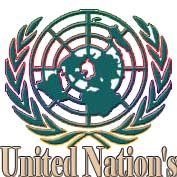UN special envoy ends Myanmar trip, fails to see Aung San Suu Kyi
 Yangon - UN special envoy to Myanmar Ibrahim Gambari left Myanmar Saturday after six days in the country but failed to see opposition leader Aung San Suu Kyi.
Yangon - UN special envoy to Myanmar Ibrahim Gambari left Myanmar Saturday after six days in the country but failed to see opposition leader Aung San Suu Kyi.
Gambari, who added a sixth day to his five-day trip in an effort to meet with the National League for Democracy (NLD) leader Suu Kyi, gave no reason why they didn't meet.
NLD spokesman U Nyan Win said that the meeting depended on three parties, the UN, the Myanmar government and Suu Kyi herself, but he did not elaborate.
"Some people said it only depended on Aung San Suu Kyi but that is not true," he said in a telephone interview.
Suu Kyi, who has been under house arrest in her family's Yangon home for the past five years, refused to get in a government car to meet Gambari on Wednesday and did not come out to greet the UN special envoy's car Friday morning when it parked in front of her compound for an hour.
Gambari did meet with Prime Minister Thein Sein for a second time Saturday but he did not get to see junta leader General Than Shwe.
Gambari was scheduled to talk with reporters at the airport before he departed but those plans were canceled with no explanation.
Suu Kyi has been under house arrest since May 2003, being kept in near-isolation by the ruling junta, which recently extended her imprisonment, adding another six months to a year to it.
On rare occasions, she has been allowed to leave her house under army escort to meet with visiting UN special envoys, such as Gambari and his predecessors.
Despite the meetings, all UN special envoys to Myanmar have failed to persuade Myanmar's ruling junta to release Suu Kyi or include her in deliberations on the future course of Myanmar's politcal system.
The NLD won the 1990 general election by a landslide but has been denied power by the country's entrenched military establishment, which has ruled Myanmar since
1962.
UN Secretary General Ban Ki-moon is hoping to visit Myanmar in the last week of December if conditions are appropriate to discuss the country's political problems, UN sources said.
Ban was last in Myanmar in May when he made an emergency visit to pressure the country's junta to allow entry of international aid and relief workers in the wake of Cyclone Nargis, which left about 140,000 people dead or missing.
Ban was criticized at the time for concentrating on the aid and neglecting Myanmar's long-simmering political caldron and the junta's refusal to free Suu Kyi and other political prisoners or to introduce genuine political reforms.
This week's visit is Gambari's fourth since last year to Myanmar, also known as Burma, where he has been handed a mandate by the United Nations to deal with the country's military regime in addressing international concerns about human rights violations, slow-paced political reforms and the ongoing detentions of political prisoners.
The State Peace and Development Council, as Myanmar's junta calls itself, has shown little willingness to comply with Gambari's overall mission.
Myanmar has been under the equivalent of martial law since 1988 when the army unleashed a brutal crackdown on a nationwide pro- democracy movement, which left an estimated 3,000 people dead and thousands more in prison.
Suu Kyi, who received the Nobel Peace Prize in 1991, has been under house detention for 13 of the last 20 years. (dpa)